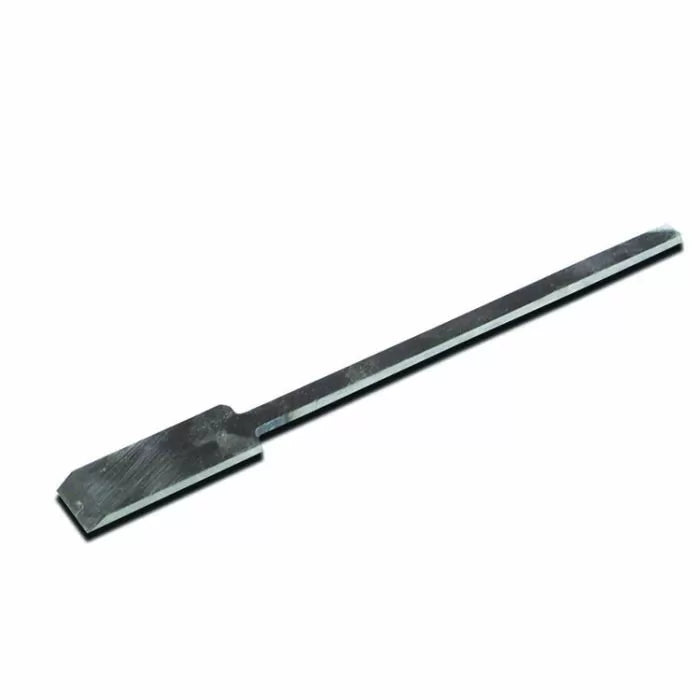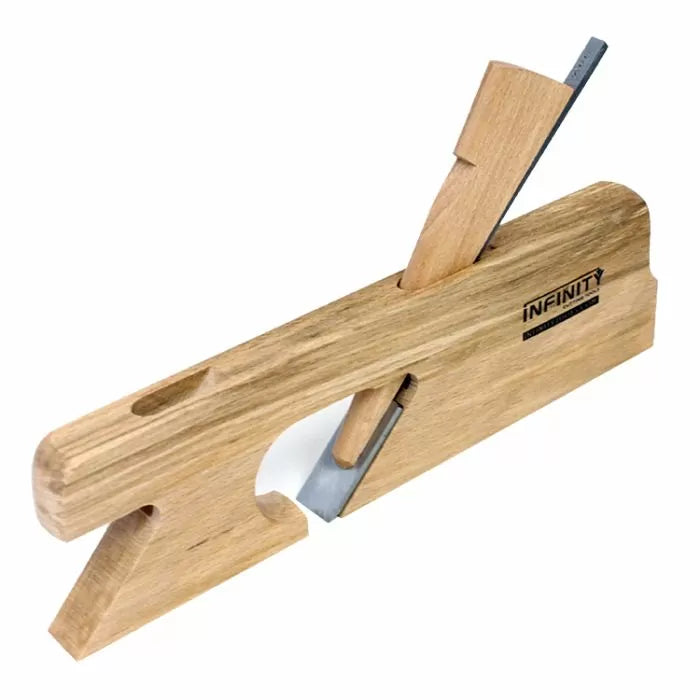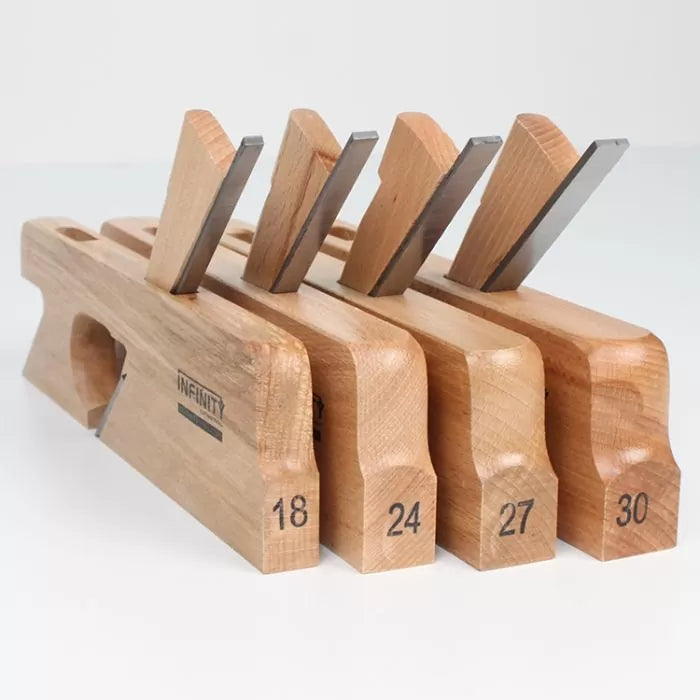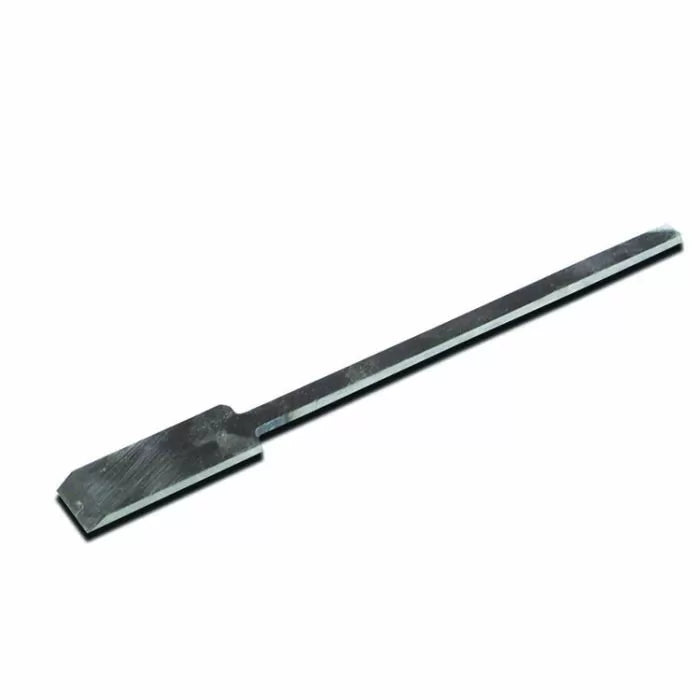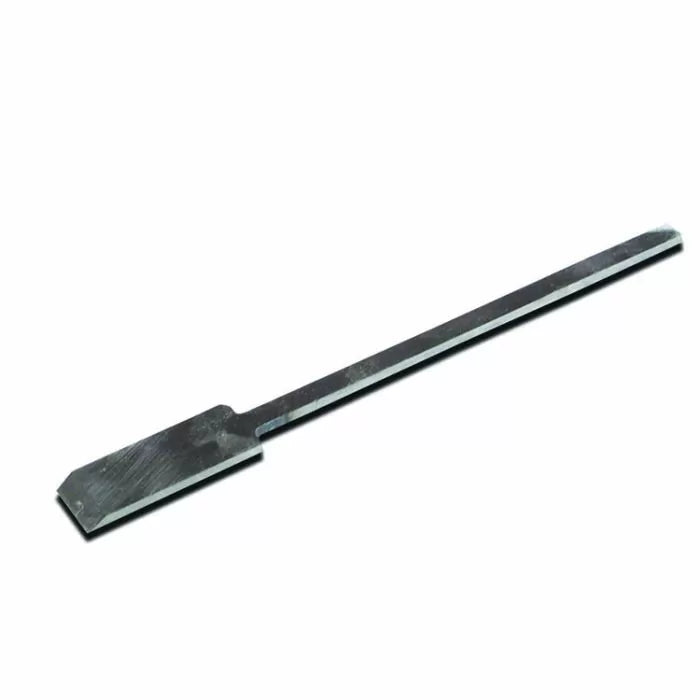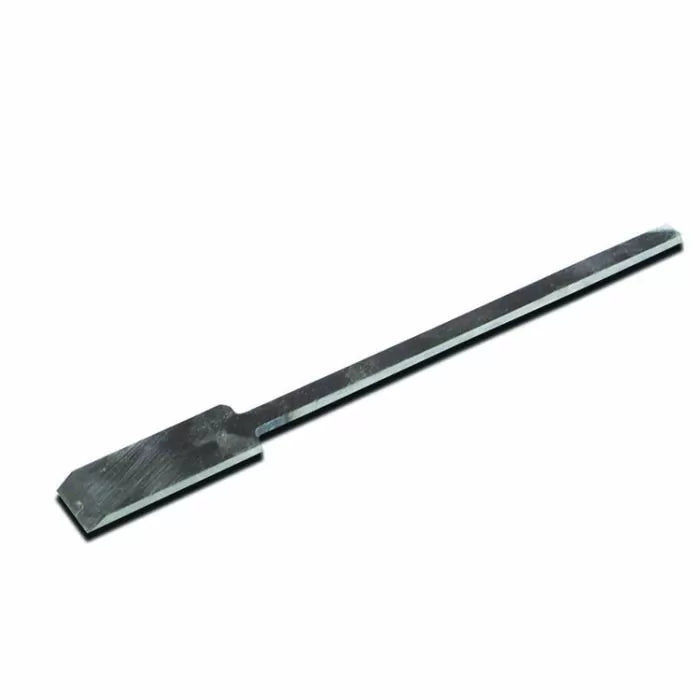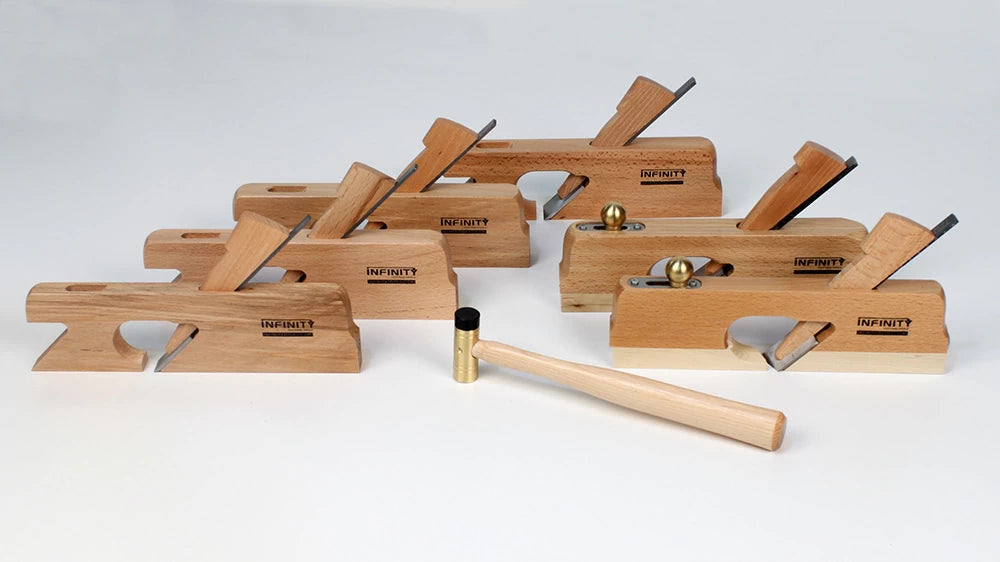
Have you ever created a tenon that was a hair too tight to fit into the mortise? Or a rabbet that wasn't quite deep enough or wide enough? How about a dado that needs cleaned up? A rabbet plane is perhaps the most accurate tool you can use to sneak up on a perfect fit.
A rabbet plane, as its name implies, was designed to create or fine-tune rabbets. What's unique about rabbet planes is that the iron, or blade, extends all the way to the sides of the plane body. This allows the cutting edge to create a square corner in joinery such as dadoes, grooves, rabbets, tongues, and tenons.
The rabbet planes offered by Infinity Tools can be broken down into three sub-categories: Adjustable rabbet plane, skew rabbet plane, and double rabbet planes.
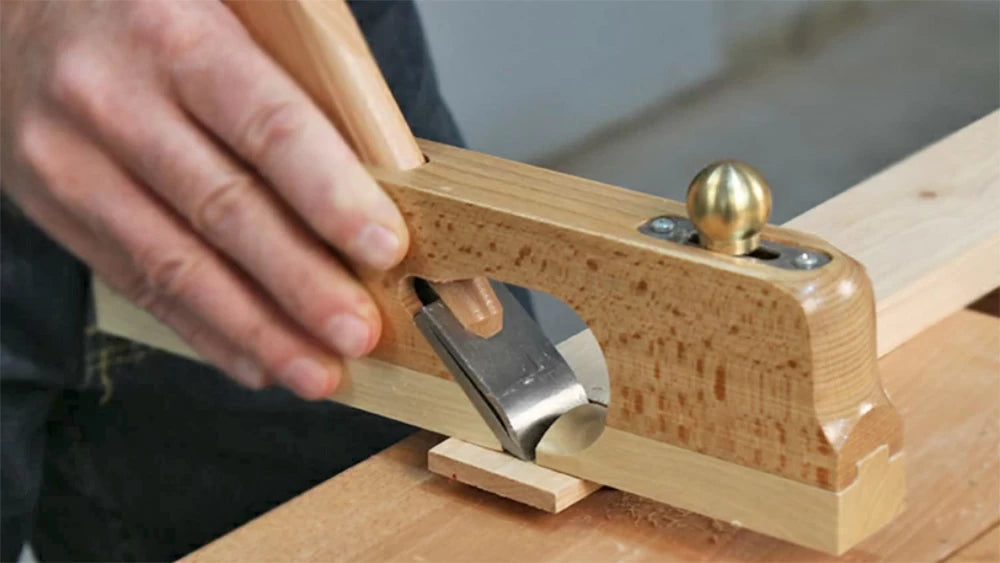
The adjustable rabbet plane shown above has a sole piece at the front of the plane that can be positioned to close or open the mouth of the plane where the shaving exits. A tighter mouth with a light cut results in a smooth surface. A larger mouth opening allows thicker shavings to exit without jamming up in the plane.
The skew rabbet plane has similar features to the adjustable rabbet plane. The mouth opening can be adjusted. The main difference, though, is that the plane iron is bedded, or "skewed," at an angle relative to the sides of the plane body (see below). This effectively lowers the cutting angle of the iron to make it especially useful for slicing cleanly through end grain.
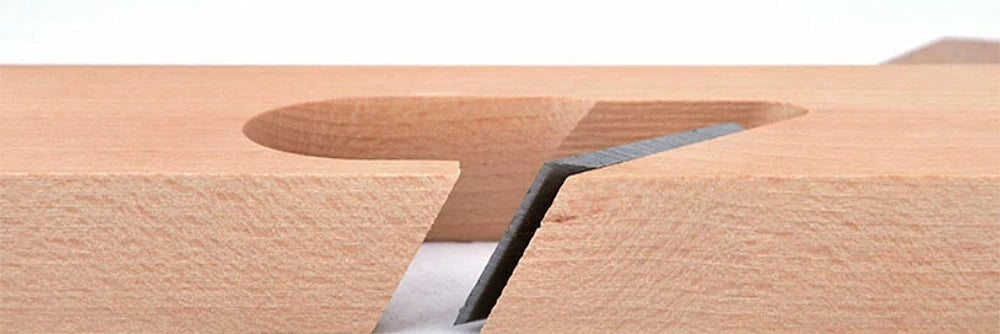
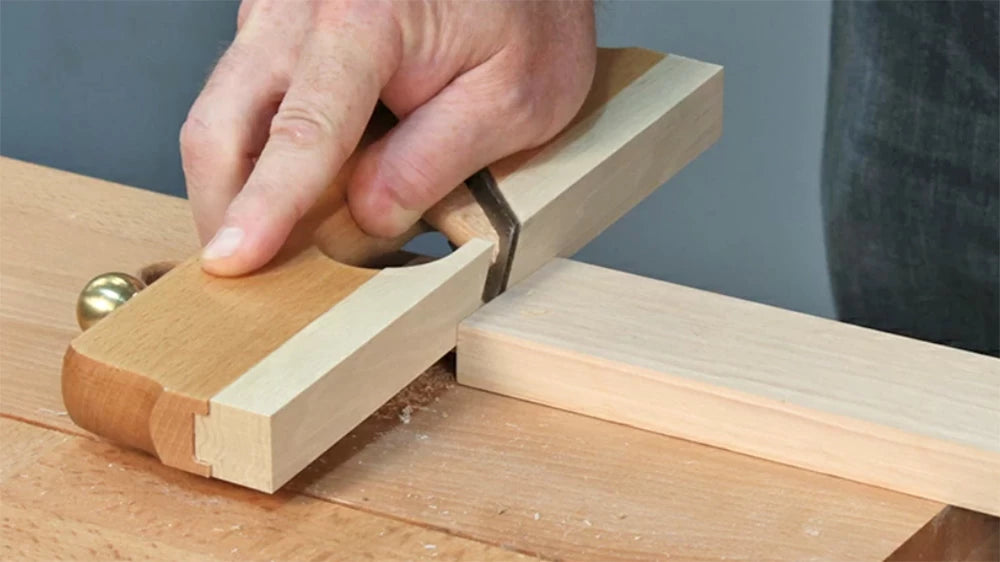
Double rabbet planes look a little odd. They're unique in that they have two positions you can use for the iron — the middle of the body or at the front, as shown below. The front position turns the plane into a "bullnose" plane, allowing it to get tight into a corner such as a stopped rabbet or dado.
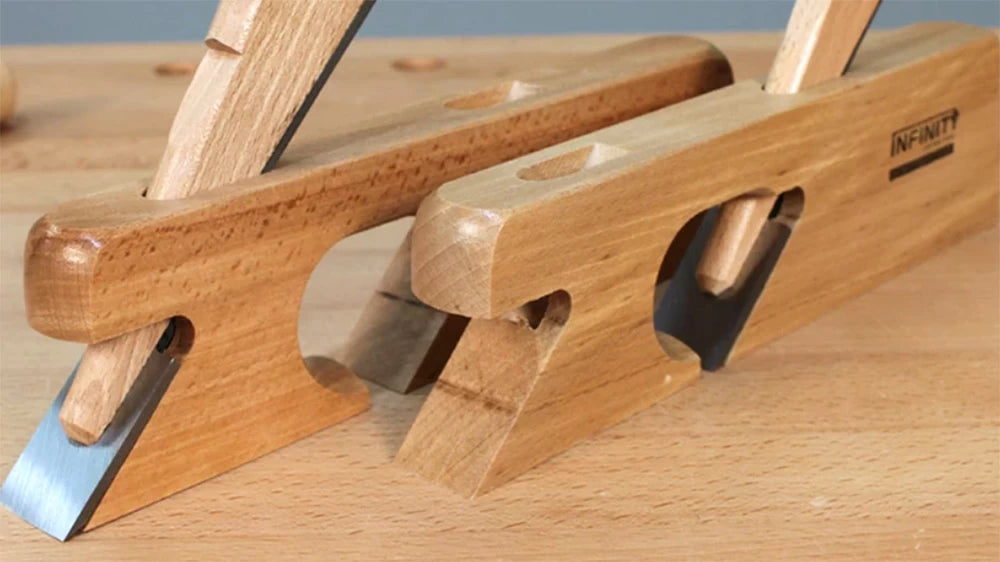
The double rabbet planes are available in different widths, depending on the application. The widths are marked in millimeters at the heel of the plane body, as you can see below. The different widths make the double rabbet planes ideal for cleaning out dadoes and grooves.
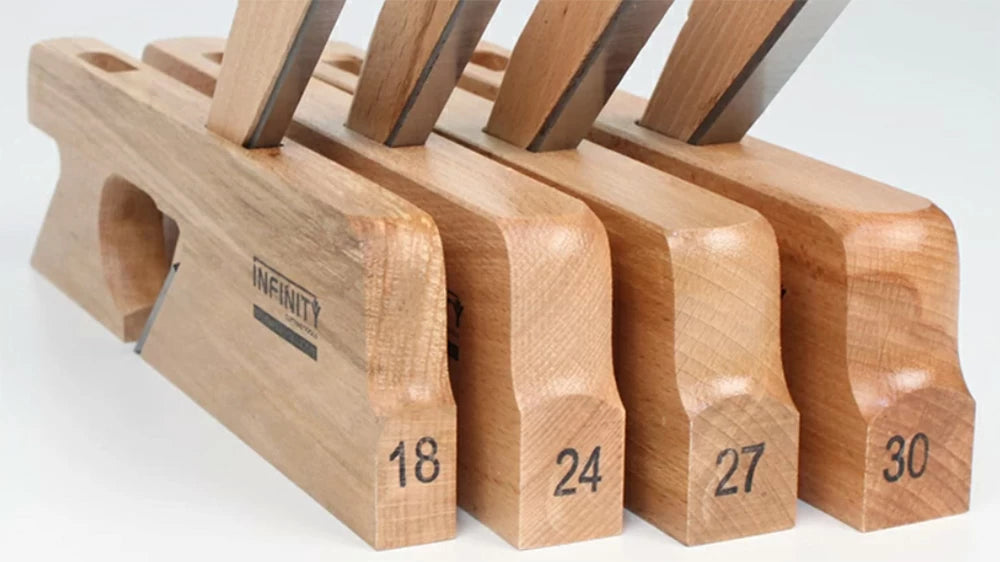
The soles of the adjustable and skew rabbet planes are made of hornbeam with European beech bodies, as has been the tradition for decades or longer. The double rabbet planes are made from solid beech. The soles are machined straight and smooth.
These planes are a tremendous value if you're willing to put in just a little time to sharpen the iron. But it doesn't take long to flatten the back of the iron and hone the bevel. I use diamond stones that cut quickly.
As for the quality of the irons, they're made of chrome-vanadium steel alloy hardened and tempered to 58HRC. Also, these planes are CNC-machined so you know the bed is going to be flat, as well. The manufacturer of these planes has been making quality hand tools for over 100 years.
When it comes to removing, installing, and adjusting the depth of the iron, you know what they say: A picture is worth a thousand words. In this case, the video below shows you how to do this. It's easier than you might think.
When I talk to woodworkers about hand planes, one of the questions I hear a lot is, "Which hand plane should I buy first?" The discussion usually centers around common bench planes or block planes. There is one type of hand plane, however, that should become a part of your hand tool arsenal sooner rather than later: Rabbet planes.

